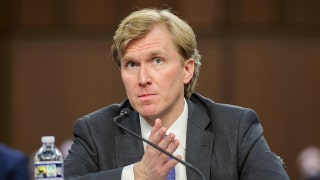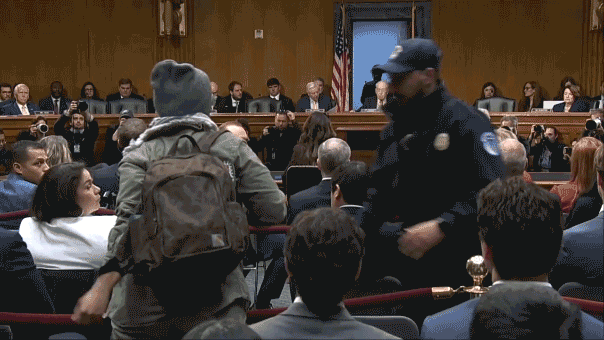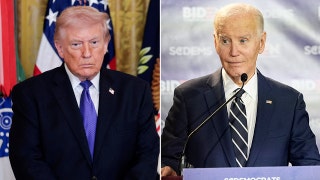Fox News Flash top headlines for September 3
Fox News Flash top headlines are here. Check out what's clicking on Foxnews.com.
President Biden Friday morning doubled down on his support for the $3.5 trillion spending plan that some moderate Democrats like Sen. Joe Manchin oppose, siding with progressives like Reps. Alexandria Ocasio-Cortez and Sen. Bernie Sanders in the brewing intra-party battle over the bill.
Biden said that the government should have two focuses in September. The top priority, he said, is beating back the coronavirus pandemic. But he also pushed Congress to pass his two major spending plans.
"The second thing that has to happen in September is for the Congress, the House and Senate, to finish passing my economic agenda so that we can keep up the historic momentum we've been building," Biden said.
"It's about investing in America's future. Not about short-term stimulus. That's not what we're talking about. These are long-term prosperity we're talking about," Biden said. "Creating millions of good paying jobs for hardworking Americans. It's about reducing bottlenecks in our economy, about reducing long-term price pressures."
Biden added: "We're going to create millions of good paying jobs. We're going to ease inflationary pressure."
Those points closely mirrored arguments Manchin, D-W.Va., made in a Wall Street Journal op-ed in which he said he'll refuse to vote for the $3.5 trillion spending plan.
"Over the past 18 months, we’ve spent more than $5 trillion responding to the coronavirus pandemic. Now Democratic congressional leaders propose to pass the largest single spending bill in history with no regard to rising inflation, crippling debt or the inevitability of future crises," Manchin said in the Journal. "Those who believe such concerns are overstated should ask themselves: What do we do if the pandemic gets worse under the next viral mutation? What do we do if there is a financial crisis like the one that led to the Great Recession?"
It's about investing in America's future. Not about short-term stimulus… We're going to create millions of good paying jobs. We're going to ease inflationary pressure.
Biden's reasoning that spending so much money would ease inflation is not clear, given that inflation generally happens when there is too much money in the economy, not too little.
MANCHIN TELLS DEMS TO ‘HIT THE PAUSE BUTTON’ ON $3.5T SPENDING PLAN
Biden also emphasized that the $3.5 trillion plan will raise taxes on the rich but not the middle class, that it will create free pre-K and community college, and argued that it will be good for the economy.
"Our country needs these investments," Biden said. "I've seen no evidence to suggest it's going to cost jobs or cost, I mean, you know. And now we need Congress to finish the job, to come through for the American people."
Over the past 18 months, we’ve spent more than $5 trillion responding to the coronavirus pandemic. Now Democratic congressional leaders propose to pass the largest single spending bill in history with no regard to rising inflation, crippling debt or the inevitability of future crises.
The comments from Biden come ahead of a September that marks crunch time for two of the president's most important agenda items.
Moderates like Manchin champion the bipartisan infrastructure bill, which the Senate passed before leaving town last month. Centrists in the House like Rep. Josh Gottheimer, D-N.J., held out on voting for the budget resolution that enabled Democrats to bypass the Senate filibuster through reconciliation in exchange for a promise from Speaker Nancy Pelosi, D-Calif., that the infrastructure bill will be considered later this month.
CLICK HERE TO GET THE FOX NEWS APP
But Manchin and his allies are much cooler to the idea of spending $3.5 trillion on what amounts to a wish list of Democratic priorities from social programs to climate change and beyond.
The rubber will hit the road for the reconciliation bill on September 15. That's the deadline for committees to finish drafting the legislation. Democrats will then face a mad rush to pass it through both chambers, ensuring that their most centrist or progressive members don't flake along the way.
The deadline for the House to consider the infrastructure bill is September 27.
The margin for error in both chambers is minuscule. With the 50-50 Senate just a single defection will sink the reconciliation bill. And with 220-212 Democratic majority in the House, if Democrats lose four votes it sinks the bill. Republicans are expected to universally oppose the legislation.
It's not clear how Democratic congressional leaders will balance the demands of Manchin and Sen. Kyrsten Sinema, D-Ariz., for a smaller reconciliation bill with promises from party progressives to torpedo the infrastructure bill if they don't get what they want in reconciliation.
And if the price tag on the reconciliation bill is lowered, it's notably not clear that all progressives like Sen. Bernie Sanders, I-Vt., will vote for it. He says $3.5 trillion is his floor and that he would rather $5 trillion. And leaders like Pelosi and Senate Majority Leader Chuck Schumer, D-N.Y., will have to navigate all of this amid sniping in their caucus.
"I wish that I could hit your mute button but here we are," Rep. Ayanna Pressley, D-Mass., said Thursday about Manchin's call to hit the "pause" button on reconciliation in the Journal.














































